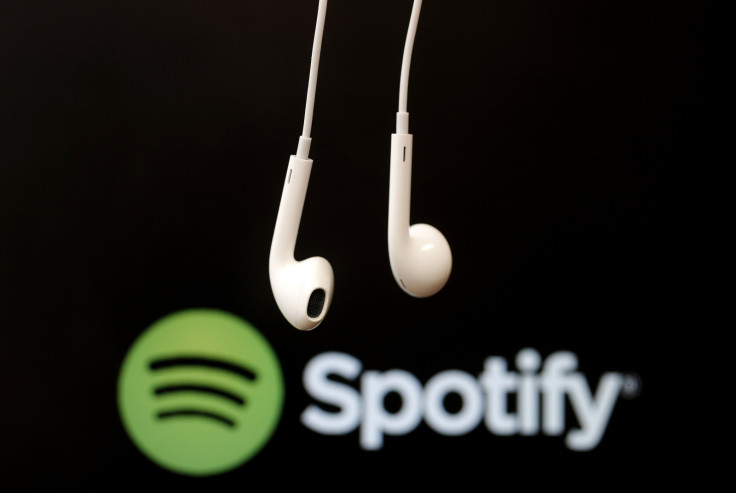Spotify's 1st report as public company flops on Wall Street
The stock hit a new high of $171.23 Wednesday before backtracking slightly and then tumbled by more than 11 percent in extended trading after the results were released.
Spotify's first quarterly report as a public held company struck the wrong note with investors, even though its music-streaming service hit the subscriber-growth target set by management just before its stock began trading.
Total subscribers increased to 75 million through March, up by four million from the end of 2017. The gains announced Wednesday enabled Spotify to maintain a large lead over Apple's music-streaming service, which has about 40 million.
Spotify had projected it would end its first quarter with 73 million to 76 million subscribers in a disclosure made a week before its stock debuted on the New York Stock Exchange in early April.
The stock hit a new high of $171.23 Wednesday before backtracking slightly and then tumbled by more than 11 percent in extended trading after the results were released.
Before the retreat, Spotify was valued at $30 billion, even though the Swedish company has never turned a profit.
Besides perhaps hoping for more robust growth to start the year, investors may have been disappointed with management's outlook for the current quarter ending in June. Spotify predicted it will end the period with 79 million to 83 million subscribers.
But Apple has been stepping up its efforts to promote its music-streaming service in tandem with its recent release of the HomePod, an internet-connected speaker that is designed to learn its listeners' tastes and serve as an automated disc jockey. The push by the world's wealthiest company threatens to topple Spotify from its perch.
Two other deep-pocketed technology companies, Google and Amazon, also offer music-streaming services, raising the specter that they too will become more aggressive as they all chase after Spotify, which ended March with 1.6 billion euros ($1.9 billion) in cash — pittance compared to its richer rivals.

Spotify CEO Daniel Ek downplayed the threat posed by those rivals in a Wednesday conference call with analysts. "We don't see any meaningful impact of competition," he said.
But the competition could make it more difficult for Spotify to make money, which has proved to be a challenge since its music service launched a decade ago. The main problem has been covering the royalties owed to artists, songwriters and labels that license their music to Spotify's service.
Spotify could raise its subscription prices (now $10 per month in the U.S.), but that could drive customers to the other music services run by its larger rivals. Ek said he doesn't anticipate raising prices the near future.
Besides selling subscriptions, Spotify brings in money from ads played on a free version of the service that accounts for the biggest part of its total audience. All told, Spotify had 170 million users through March.
The company depends on its ability to convert users of its free service into paying customers for most of its subscriber growth.
Spotify lost 169 million euros, or 1.01 euros per share, in the first quarter, narrowing from a loss of 173 million euros at the same time last year. Revenue in the latest quarter increased 26 percent to $1.1 billion euros.





















